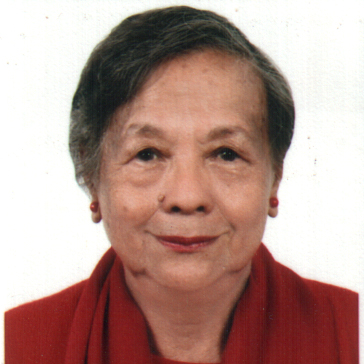Columns
The transitional justice process has failed to envision the pains of women who were sexually abused during the insurgency
As the state has excluded rape in the interim relief process and in transitional justice, many victims still await closure..jpg&w=900&height=601)
Chandra Bhadra
It has been 13 years since the Comprehensive Peace Accord was signed but a crucial agreement of the peace process—transitional justice— has shown no signs of progress. At a closer look, many Nepali women remain despondent in the absence of a gender-sensitive approach to transitional justice. Rape and sexual abuse have been used as a military tactic for a long time. As the state has excluded rape in the interim relief process and in transitional justice, many victims still await closure.
According to the Nepal Demographic and Health Survey (NDHS)—a national sample survey providing information on areas such as fertility levels, marriage and domestic violence—1,131 cases of rape were registered in 2017. But considering the amount of shame associated with victims of rape in Nepali society and the known cases of authorities unwilling to register complaints—the above figure represents just a small fraction of the many cases of rape still go unreported. What’s worse, police often refuse to file charges, preferring instead to force the victim and perpetrator to come to an agreement. And this very culture lets the perpetrators feel they can get away with acts of rape quite easily.
It is sad that patriarchal warfare claims victory by forcibly impregnating women. Although despicable, it is barely a surprise that many women were sexually abused during the decade long insurgency. The UN Security Council Resolution 1820 on women, peace and security clearly states rape and other forms of sexual violence as a war crime, a crime against humanity and a form of genocide that should be excluded from any amnesty provisions. The UN Security Council Resolution 1888 mandates the placement of ‘gender advisors’ and ‘women protection advisors’, Rapid Response Team of judicial experts to address impunity and establishing reporting mechanisms. Similarly, UN Security Council Resolution 1889 authorises increased participation of women, provision of basic services for women including reproductive health rights, and monitor the progress of global indicators on 1325 and reporting every year.
The Government of Nepal launched the National Action Plan for UN Security Council Resolution 1325 and 1820 for the period of 2011 to 2016. It was developed after much deliberation which involved including 52 district level consultations, 10 regional consultations, and separate special consultations with women and girls directly affected by conflict.
The action plan revealed there was an overwhelming shortcoming in addressing cases of sexual and gender-based violence, especially when it came to the prevention of violence, protection of survivors and improving their lives. What’s more, not much attention was given to the redressing sexually violated women by overcoming social stigma and ostracisation, and bringing perpetrators into a legal liability. The reason for this was simple: There were not enough women in the justice and security sector and the ones involved lacked proper gender sensitisation.
There is a mismatch between Nepal’s socio-cultural uniqueness and the way we have been dealing with transitional justice. Until now, we have applied a blanket approach that fails to look into the nuances of what transitional justice entails. Transitional justice initiatives usually address the most egregious human rights abuses but in our case, it seems selective in terms of what crimes are addressed, often neglecting sexual abuses against women. Therefore, this necessitates an urgency in mainstreaming gender concerns for the delivery of gender-responsive transitional justice.
Women's voices have seldom been heard in the design and implementation of restorative and retributive processes. When half the affected population is at risk of underrepresentation, it undermines peace and security. To rectify this, at least 50 percent members in the newly formed Truth and Reconciliation Commission and the Commission for Investigation of Enforced Disappeared Persons should comprise women. Of course, the importance of nominating all members, regardless of their sex, based on their academic qualifications and proven professional records on transitional justice cannot be overstated. Further, apolitical appointment ensures independence or non-partisan justice delivery. It would also be prudent if the newly inducted members of the commissions established a ‘gender unit’ to especially deal with cases of sexual violence during the insurgency.
Justice has been delayed and denied to the women who have been subjected to different degrees of sexual abuse. It’s time the state does something to relieve them of the trauma, even though just partially by crafting laws that no longer shield perpetrators.
***
What do you think?
Dear reader, we’d like to hear from you. We regularly publish letters to the editor on contemporary issues or direct responses to something the Post has recently published. Please send your letters to [email protected] with "Letter to the Editor" in the subject line. Please include your name, location, and a contact address so one of our editors can reach out to you.




 21.02°C Kathmandu
21.02°C Kathmandu















